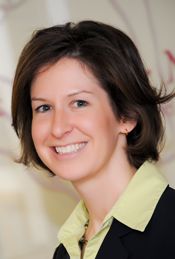
Publisher:
Bonnie King
CONTACT:
Newsroom@Salem-news.com
Advertising:
Adsales@Salem-news.com

~Truth~
~Justice~
~Peace~
TJP
Aug-11-2011 15:04

 TweetFollow @OregonNews
TweetFollow @OregonNews
Benefits and Harms to Getting a Mammogram Before Age 40, MU Researcher Says
Salem-News.comThe goal of the study is not to encourage women to avoid mammograms, but to discover more effective ways to educate women on the benefits and risks of breast cancer screenings as well as to improve communication between doctors and patients.
 Courtesy: en.wikipedia.org |
(COLUMBIA, Mo.) - Due to changing guidelines concerning when and how often they should first be screened for breast cancer with mammograms, many women are confused.
 Julie Kapp |
The American Cancer Society recommends women 40 years and older get a mammogram every year, but the U.S. Preventive Services Task Force recommends mammograms every other year for women older than 50. A University of Missouri researcher says doctors and patients should communicate better about individual patients’ timing of breast cancer screenings.
Julie Kapp, assistant professor in the Department of Family and Community Medicine, is working on a pilot study to improve communication about mammograms between patients and healthcare providers.
“The science related to breast cancer and mammography screening is continually evolving,” Julie Kapp, assistant professor in the Department of Family and Community Medicine in MU’s School of Medicine, said. “Conflicting guidelines across organizations suggest there is still a lot of work to be done to send consistent messages to women and health care professionals to ensure quality care.”
Although the current guidelines suggest varying ages at which women should get mammograms, recommendations in previous years have ranged from age 35 to age 50 for initial screenings. Kapp says women younger than 50 should talk with their physicians to customize the age at which they begin mammography screenings. Decisions should be based on women’s preference, risk factors and understanding of the benefits and harms of mammograms. Women should also be aware that total health, including diet and exercise, is important for breast health and to reduce the risk of other diseases.
“Women who get mammograms before age 40 are more likely to be subjected to the harms of mammograms that many people don’t consider,” Kapp said. “The tests are not as accurate in younger women, so they can produce false positive results. That means time spent worrying about whether they have cancer, unnecessary biopsies and additional radiation exposure.”
In a pilot study, Kapp is working to understand women’s knowledge about mammography and their feelings surrounding breast cancer screening conversations with their physicians. Kapp aims to help women understand the advantages and disadvantages of mammograms and help improve the dialogue between patients and health care providers about the best time to begin breast cancer screenings.
The goal of the study is not to encourage women to avoid mammograms, but to discover more effective ways to educate women on the benefits and risks of breast cancer screenings as well as to improve communication between doctors and patients.
“Most of the information women get about mammograms does not come from their physicians; it comes from friends, family and the Internet,” Kapp said. “Women and doctors should have frequent conversations about their overall health and breast cancer screenings.”
The pilot study is funded by the MU Research Council. Kapp has an adjunct appointment with the MU Master of Public Health Program.
Articles for August 10, 2011 | Articles for August 11, 2011 | Articles for August 12, 2011


Salem-News.com:

Quick Links
DINING
Willamette UniversityGoudy Commons Cafe
Dine on the Queen
Willamette Queen Sternwheeler
MUST SEE SALEM
Oregon Capitol ToursCapitol History Gateway
Willamette River Ride
Willamette Queen Sternwheeler
Historic Home Tours:
Deepwood Museum
The Bush House
Gaiety Hollow Garden
AUCTIONS - APPRAISALS
Auction Masters & AppraisalsCONSTRUCTION SERVICES
Roofing and ContractingSheridan, Ore.
ONLINE SHOPPING
Special Occasion DressesAdvertise with Salem-News
Contact:AdSales@Salem-News.com

Terms of Service | Privacy Policy
All comments and messages are approved by people and self promotional links or unacceptable comments are denied.
Jane August 14, 2011 5:26 pm (Pacific time)
My friend fought breast cancer for 8 years and went through every imaginable invasive 'treatment' available and told me shortly before her death "the doctors never talk about quality of life."
Colli August 11, 2011 5:09 pm (Pacific time)
I lost my wife of 30 years to breast cancer. She discovered the lump herself during regular breast self-examination. Returning home from hearing that a needle biopsy confirmed that she had breast cancer, we stopped to get the mail. It contained a letter sent to announce the results of a recent mammogram and it congratulated her on being "Cancer Free".
Here are the facts: (1) female breast tissue is usually too dense to give highly accurate readings before age 50, (2) women who have common issues such as fibrocystic breasts are frequently misdiagnosed because of mammograms.
Given these FACTS, why are hundreds of millions of dollars being spent on political elections when that money could be better spent on saving the lives of millions of women every year?
One woman in eight will battle breast cancer in their life. If you have a wife, sweetheart, mother, sister, daughter, granddaughter, niece, or friend you value, seek to limit the amount that can be spent on elections with all excess donations channeled to finding a cure for breast cancer. Watching the person you love most in the world die from this killer builds an anger in you that simply cannot be soothed. Having five granddaughters who carry those genes puts a fear in you that simply will never go away. We waste too much money in this country every day on foolishness to allow the women we love to suffer such a fate!
Editor: Thanks Colli for sharing that.
Daniel: My most sincere condolences on your loss.
[Return to Top]©2026 Salem-News.com. All opinions expressed in this article are those of the author and do not necessarily reflect those of Salem-News.com.